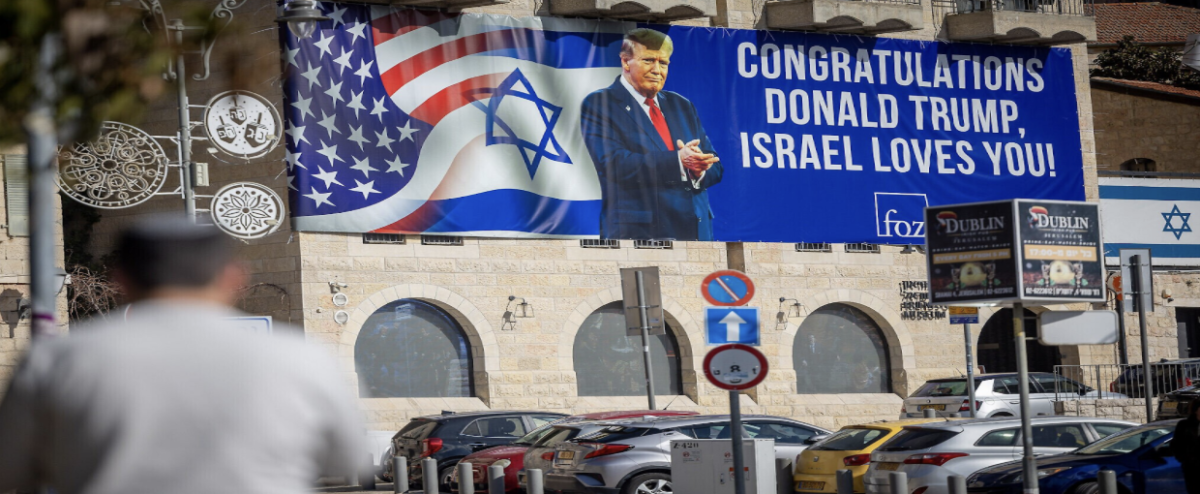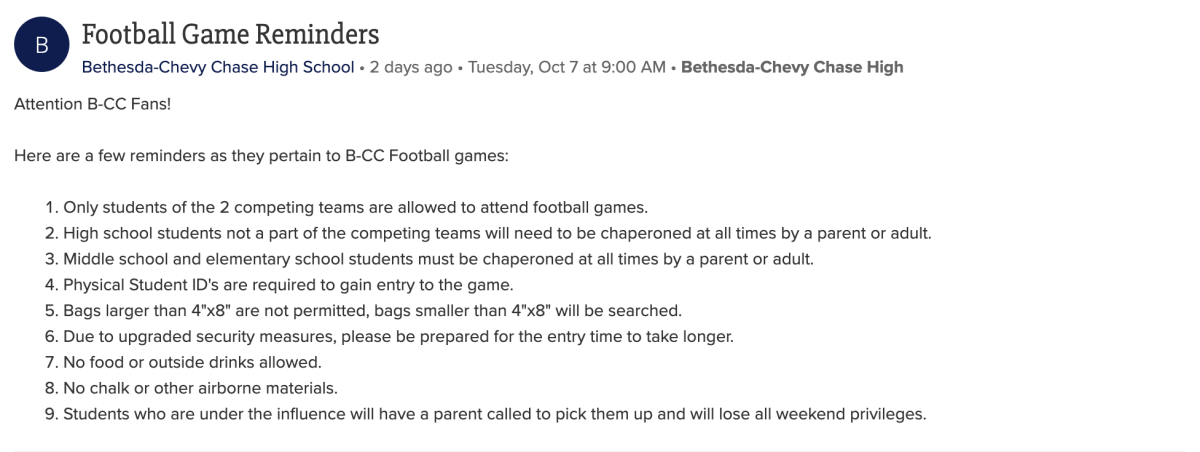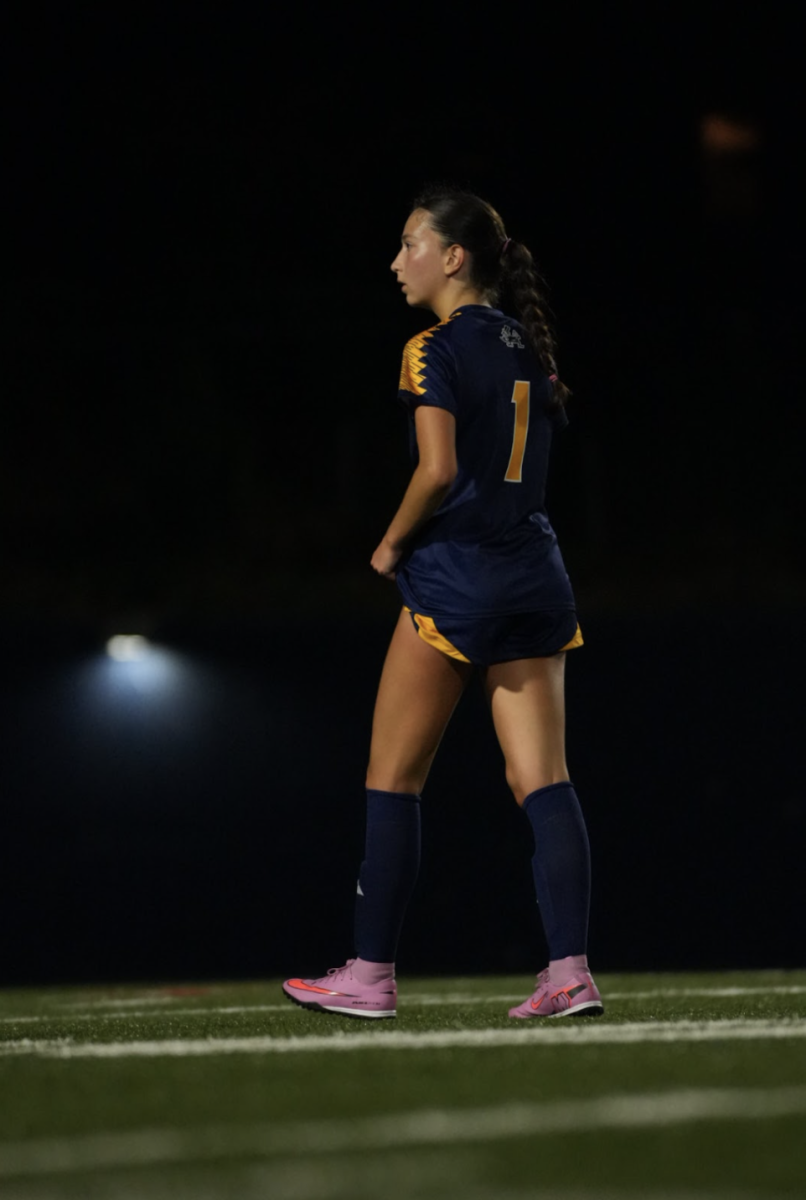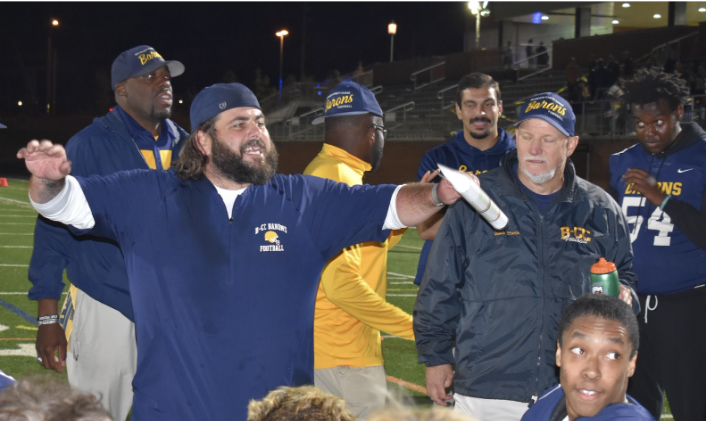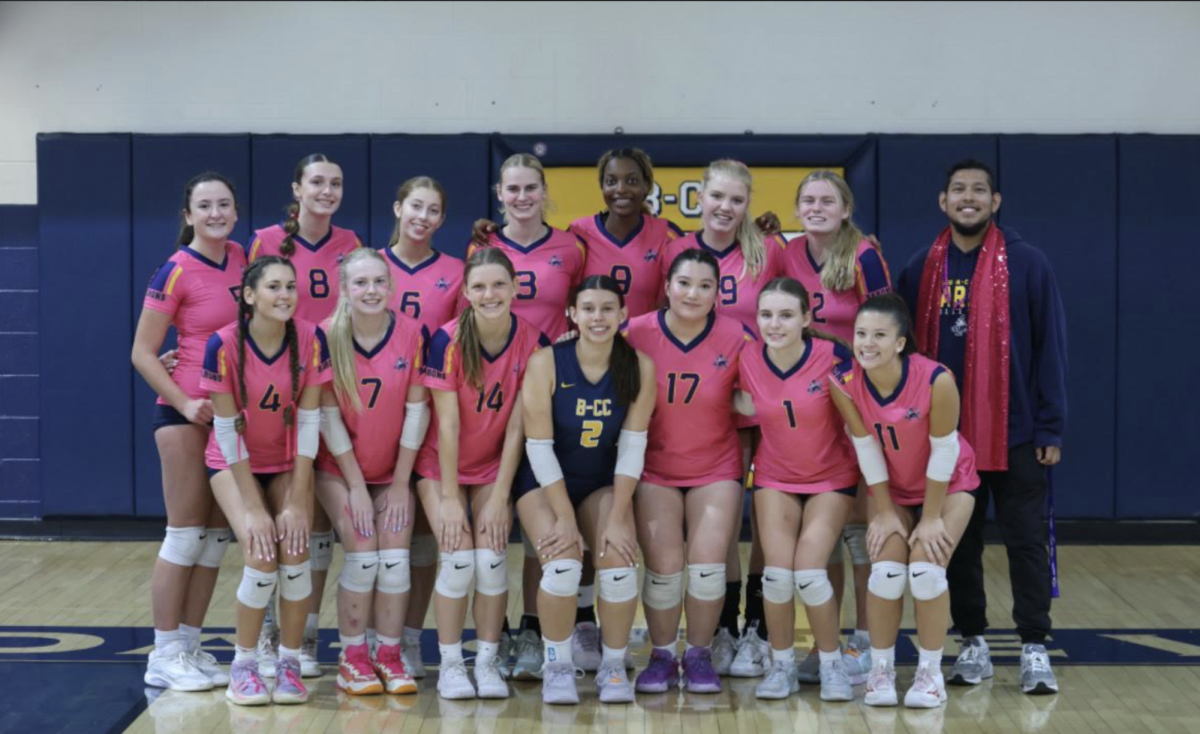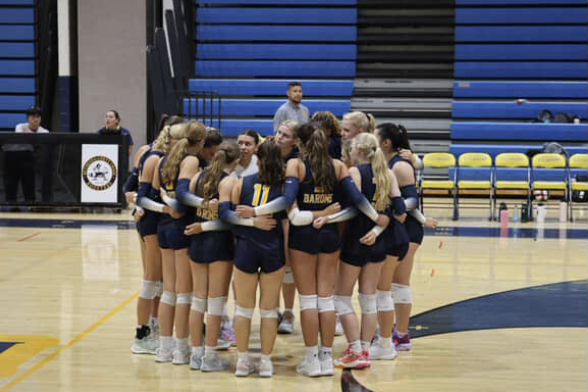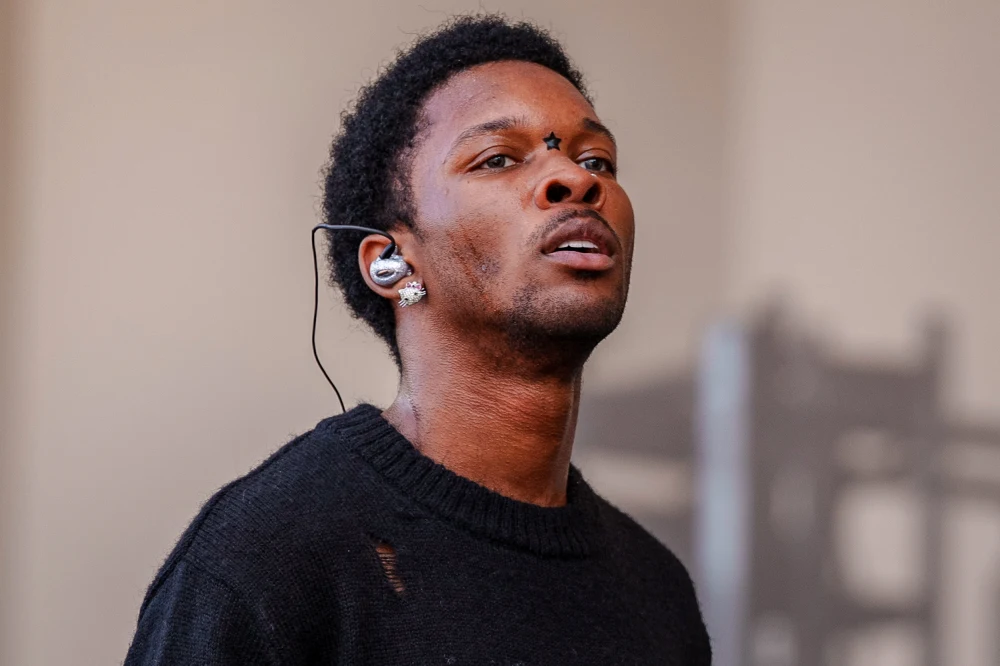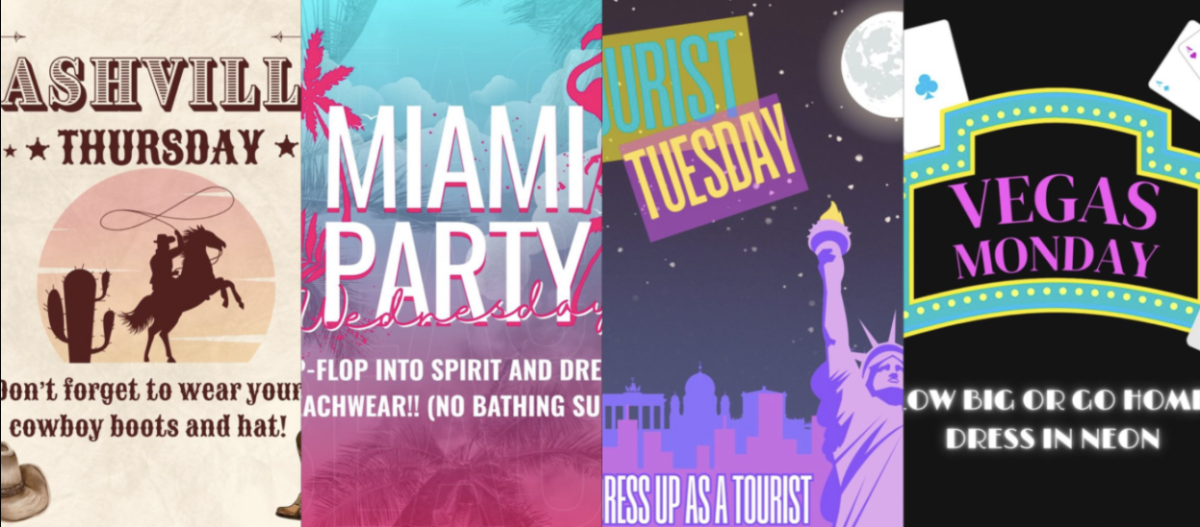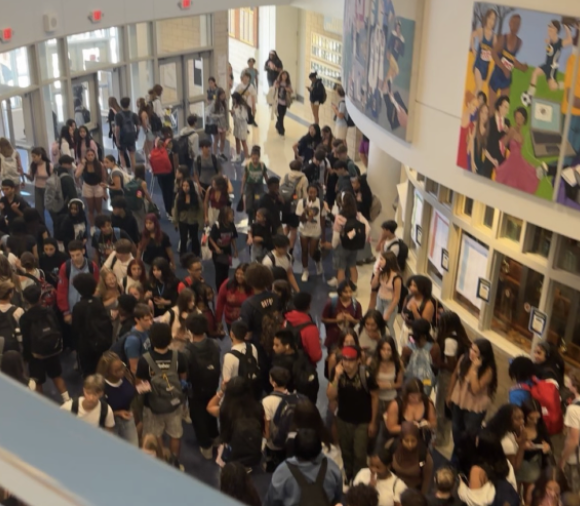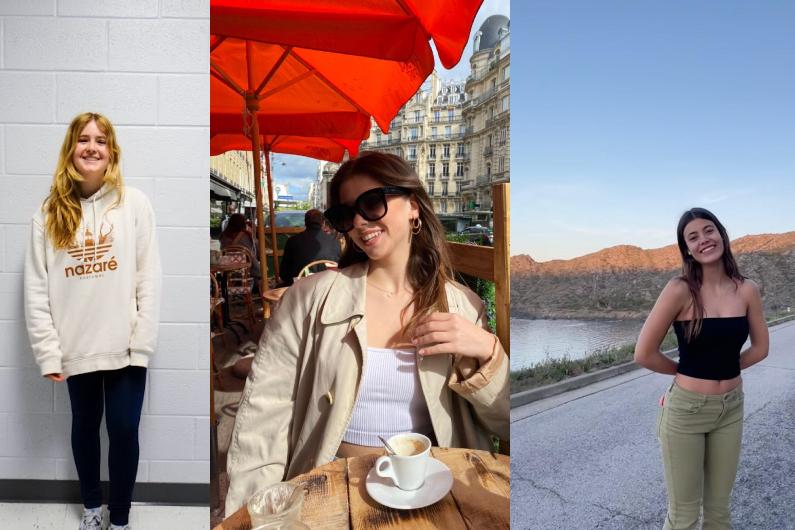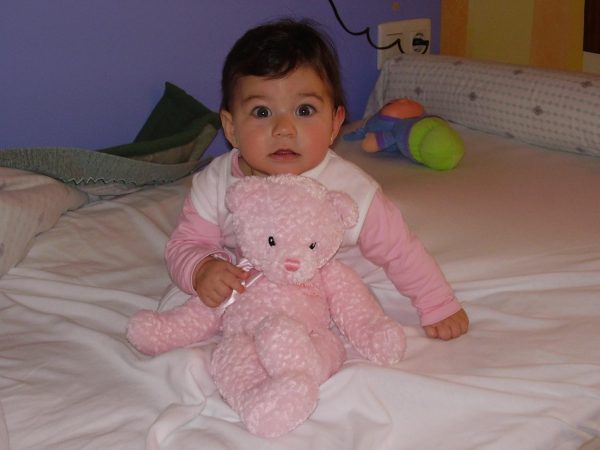Hollywood films often glamorize the idealistic “American high school experience,” encouraging young audiences to dream about their future opportunities.
Schools in America are widely known for their diversity and opportunities, with American high schools offering a rich mix of academics, extracurriculars, and social activities. As a result, students are attracted from around the globe to study here in America, and B-CC is no different. According to B-CC’s exchange students, their time in America has truly lived up to their expectations of “The American Dream.”
This year, B-CC hosted three exchange students: Maria Chico from Barcelona, Spain, Miranda Majnoni from Paris, France, and Luana Turcco from São Paulo, Brazil. In a series of interviews, they told The Tattler about their unique experiences at B-CC so far.
Q: Does your experience reflect what’s shown in American films?
Maria: “I think B-CC is like a movie: the football games, the cheerleaders, the number of people in the hallways when changing classes…”
Miranda: “Yes, completely. Especially the buildings that look the same, the lockers, Poms and Cheer… Also, I feel like the students here are kind of the same as in the movies, like there are groups of students or cliques. But what I find different is that in movies there are always people that [are disrespectful], but [for the most part] people here are pretty respectful of one another.”
Luana: “I would say, yes, but in parts. There are a lot of things that are very similar. My friends [back home] keep asking me for photos of some really dumb things like the school bus, which is yellow and has the same shape as the movies, the school lockers in the hall, like, that stuff you can see in the movies in American Schools. So I would say that the physical space and all the sports and events are really just the same as in the movies. But, I think people are very different. I feel like the movies portray a more cheerful environment, and I haven’t felt that much, at least not in B-CC.”
Q: What was difficult about adapting to a new culture? What made that process easier?
Maria: “I think the language is a barrier when you try to adapt to a new culture, but after a couple of months, that disappears.”
Miranda: “The language was definitely difficult to adapt [to] for at least the first three months of being here. I would also say making real friends on which I can count, at the beginning was pretty hard. Something else that was pretty hard was to break away from [my] culture because [I ended up comparing] everything from the two countries.”
Luana: “The hardest thing about adapting was definitely the people, and how to relate to them, what to say, when to say it…because people are what most reflect culture, and I think the biggest difference between the United States and my country, at least, is the way people relate to each other, the way they consider themselves and how they react. I feel like here everyone is much more closed, restricted. Almost like it was a more polite thing, you know? There are exceptions, of course, but, in general, most people were really difficult to deal with, because I didn’t know how the social relationship worked, and whether the person considered me… those things. But something that helped a lot was talking to other people and seeing that they felt the same. I think this calmed me down a lot because I accepted that, ‘okay, the culture here is like that,’ and then after seeing this, I think it became easier.”
Q: What excites you about this year abroad? What have you been surprised about during your year abroad?
Maria: “Being here is a huge experience, because I am in a big country with many things to see and discover. For example, I [had] the opportunity to visit New York. Maybe for many going to New York is normal, but for me, it’s a big thing, because if I was in Spain, I probably wouldn’t go.”
Miranda: “I have been surprised about the teachers and how kind they are with the students. Even here in the U.S. it seems pretty normal, and students don’t realize how the teachers and how the school cares about the well-being of students. Outside of school, I’ve been surprised by how bad public transport is (sorry!) and how it’s necessary to have a car in this country.”
Luana: “I think what makes me most excited about being here is meeting new people, especially from different countries. I really like this about B-CC, how many people are from other countries, and I think that what I gain most from being here is not only the relationship that I create with the United States, but I [learn about] several other cultures through these people. I came from a very small school [relative to] B-CC. Just to give you an idea, the entire high school had three hundred people, so it makes me very excited to come to such a big school, with so many people to meet every day.”
Q: What do you miss most about home?
Maria: “I miss my family and my friends, but also my city. In my country everything is smaller, so everything is closer. You can go anywhere without a car. This is not possible here. Also, all the restaurants and shops I used to go to don’t exist here. Despite this, I [have] discovered a lot of new shops and restaurants that I am going to miss when I go back.”
Miranda: “Obviously, my family and my friends are something that I miss a lot but also my own routine. Something else that I miss is the city, which is a totally different environment and the fact that I know everything by heart about my city… I arrived here, and I didn’t [know where everything was]. Even though here high school cares a lot about well-being, which is really good, I miss being challenged in my classes and being really interested in them.”
Luana: “I would say my friends, for sure. As I said before, the relationship is simply very different, I don’t even think it’s possible to compare. But I also miss the food.”
Q: If you could bring one thing from your home country to share with people here, what would it be?
Maria: “It’s a hard question to answer, because there are many things from my country that I would like to share with my friends here. However, sharing typical dishes from my country is a way to show them my culture. I think that traditional food from a country is more than just food.”
Miranda: “If I could bring something from France to the U.S. it would be the fashion.”
Luana: “Music. I just feel like Americans would really love Brazilian music. That’s actually something you can show easily, just by opening Spotify or something like that.”
Q: What is your favorite memory that you’ve made so far?
Maria: “I have a lot of favorite memories, because I am constantly living new experiences and discovering new things.”
Miranda: “It’s not a moment in particular, but I would say the whole period of Christmas.”
Luana: “I really don’t know. I have so many. I have a friend who lives very close to school. We walk. I think what I’ll miss most is going to her place after school everyday…or having lunch there when we have early release and stuff like that. I loved going skiing too. We don’t have snow in Brazil, so we don’t have skiing either. I went one weekend with a friend, and it was really fun. But really a memory, I have no idea.”
Q: What’s a tradition you have in your country that doesn’t exist in America?
Maria: “Sant Jordi is one of the most original celebrations in Catalunya and takes place in the spring on April 23rd. Sant Jordi combines the celebrations of World Book Day and Valentine’s Day. On this day, it is custom[ary] for couples to exchange gifts: the men receive a book and the women receive a rose. However, this has developed over time, so both men and women can receive books and roses. Guys giving roses to the girls comes from a legend where a knight kills a dragon that was hurting a princess. From the blood of the dred dragon grows a rose. In the end, the knight grabs the rose and gives it to the princess.”
Miranda: “It’s called ‘galette de rois,’ and the story is that the Romans celebrated Saturnalia, winter solstice festivals, which consisted of designating the king or queen of a day, by means of a white or black bean hidden in a cake.”
Luana: “Obviously, there’s a lot, but I’m going to talk about my favorite. It’s called Festa Junina (if you translate it, it literally means June Party). As the name says, it takes place in June, basically the entire month. We wear specific clothes, specific makeup, have specific Festa Junina music, as well as dances, decoration, food, some traditions… Anyway, I love it. That’s my favorite holiday ever. I especially love the music, the vibe, and the food. It’s basically to honor three saints [and] was brought by Portugal when they colonized us. I think now it’s the second biggest annual celebration in Brazil.”
Q: Finally, what’s a phrase or expression in your first language that you’d like to share?
Maria: “‘Qui no arisca no pisca.’ In English, it would be ‘You only live once’ or ‘YOLO.’”
Miranda: “I would say ‘apres la pluie le beau temps’ which [directly translated] means ‘after rain the good weather.’ I like it, because it’s just an expression that gives a positive energy, and the French are known for having negative energy, so I like it. [We] use it a lot to not think about [how] even if right now things are bad, after good things are going to come.”
Luana: “That’s actually the hardest question, because I really love my language and there are some things that [only] make sense in it. But we have this expression that I really enjoy…“nao tem amor a própria vida,” that would kind of be, “has no love for his own life.” [We usually say this] about someone else, when they do something really stupid, especially in cases that are dangerous or shameful, [or] disreputable. I just think it’s really fun, and it makes a lot of sense – that you don’t love your own life enough to make good decisions. But, really, there [are] a lot of good expressions.”

